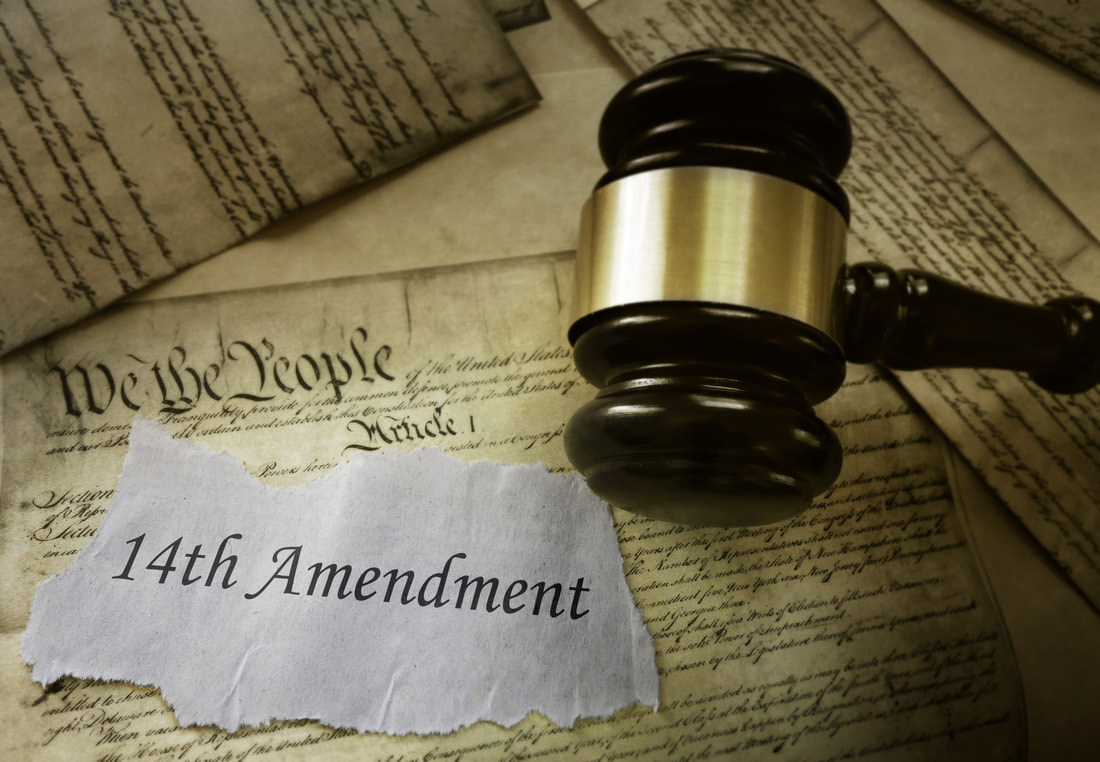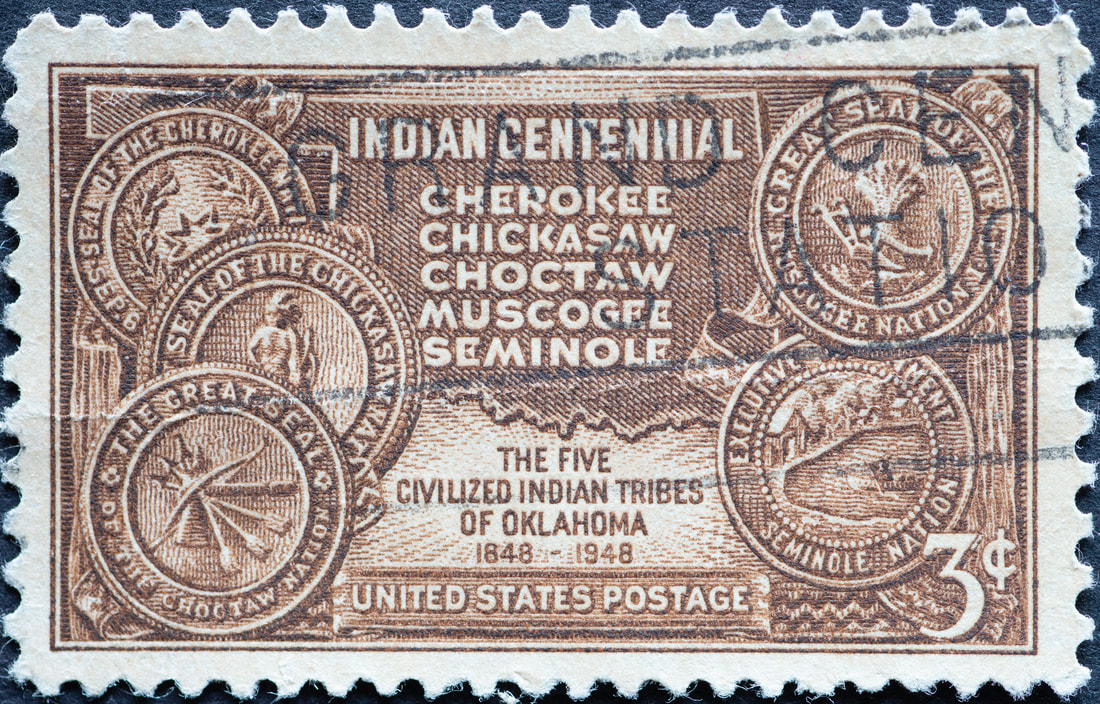|
Georgia Senate Republicans filed a formal complaint to punish Fulton County District Attorney Fani Willis after she sought charges against former President Donald Trump under a new law aimed at sanctioning “rogue” prosecutors.
The complaint contends Willis “improperly cherry-picked cases to further her personal political agenda” and asks the newly formed Prosecuting Attorneys Qualification Commission to initiate an investigation and take “appropriate measures” to sanction her. “The integrity of our justice system is at stake, and the trust of the community in the District Attorney’s Office has been severely eroded,” states the complaint, which a group of eight state senators submitted hours after the law took effect Oct. 1. The Republicans don’t specifically mention Trump in the complaint, but they sought to link a spate of deaths in the Fulton County Jail to Willis’ decision to “empanel a special grand jury to investigate her political adversaries” amid a yearslong backlog of cases. Willis, who has criticized the law as racist and retaliatory, declined to comment through a spokesman. But she has long said that she can balance the high-profile trials in the Trump case with the other demands of her office. The complaint sharpened an already deep rift over Trump among state Republicans. Gov. Brian Kemp, a chief sponsor of the law, has repeatedly said there’s no evidence Willis should face any sanctions by the commission for bringing the indictment against Trump and his allies alleging they participated in a “criminal enterprise” to overturn the 2020 presidential election in Georgia. Kemp, however, has criticized the timing of the charges. “I haven’t seen anything that she has done that has broken the law or the procedures that we have. And I’ve been very honest with people about that,” Kemp said in a recent interview. “It may be a political action she’s taken in some ways, with timing and other things, but it doesn’t mean it’s illegal.” But the GOP-controlled state Senate has forcefully broken from that approach. Senate leaders encouraged their constituents to file complaints with the commission against Willis shortly after she announced the indictment in August. And last week, Senate Republicans launched a probe into dangerous conditions at the Fulton County Jail that is expected to scrutinize Willis’ handling of the backlog of cases that worsened during the coronavirus pandemic. The document was filed by a group that included Senate Majority Leader Steve Gooch and state Sen. Jason Anavitarte, another high-ranking Republican in the chamber. The complaint contends that Willis has “prioritized cases that align with her political party’s interests” rather than on the merits of each case. And it invokes the 10 inmates who have died in Fulton County custody in the past year. “Her selective prosecution has resulted in dangerous, deadly, and unjust overcrowding in the local jail and an unprecedented backlog of cases in the judicial system,” the complaint states. “These consequences are unacceptable and detrimental to our state.” Democrats immediately accused Senate Republicans of political theater to subvert the rule of law. ”Fani Willis is doing her job in upholding the rule of law. Trump and his 18 co-defendants were indicted by a grand jury for trying to overturn election results,” state Sen. Nabilah Islam Parkes said, adding that she was “deeply troubled by any attempt to interfere in lawful prosecutions for political purposes.” Georgia State University law professor Clark Cunningham, who has written extensively on constitutional law, said the complaint shouldn’t go anywhere. “The law is intended to set a fairly high bar for such an extraordinary intervention,” Cunningham said. “And a complaint like this seems to be an inappropriate use of the oversight process.” ‘Alarming’ Though the indictment has reverberated throughout the Gold Dome, the charges have particularly rocked the Georgia Senate. State Sen. Shawn Still, a first-term Republican, was charged in connection with his role as a GOP elector after he signed a false certificate claiming Trump won Georgia in the 2020 presidential election. Lt. Gov. Burt Jones, the chamber’s president and also a Trump elector, could also be indicted. Both have said they did nothing wrong. Many rank-and-file Republicans have faced immense pressure from Trump allies to reprimand Willis, even if it’s symbolic. Some of the furor has been stoked by state Sen. Colton Moore, who has singled out his GOP colleagues for refusing to back his politically impossible and possibly illegal push to impeach Willis. Two of the complaint’s supporters — state Sens. Shelly Echols and Bo Hatchett — were repeatedly targeted on social media by Moore, who was ousted from the GOP Senate caucus this month. Hatchett said the “most alarming thing, for me, is the selective prosecution.” “She is selecting politically motivated cases to go after while at the same time neglecting a huge backlog that’s unsustainable and dangerous,” Hatchett said. “It appears that she has neglected her duties as a prosecutor while focusing on a few politically motivated cases.” The other Republicans who joined the complaint are state Sens. Clint Dixon, Russ Goodman, Chuck Payne and Sam Watson. Dixon told the AJC he organized the complaint against Willis to “hold her accountable to ensure public safety is always prioritized above politics.” “Instead of doing her job — to give everyone their day in court — Willis has decided to take center stage in political theater,” he said. “She’s raising her profile and celebrity instead of prosecuting those accused of murder, rape and other crimes.” Key ruling The three-page complaint was filed shortly after a Fulton County judge rejected a challenge from a bipartisan group of district attorneys who sought to block the law from taking effect Oct. 1. In the six-page order, Fulton County Superior Court Judge Paige Reese Whitaker ruled that the plaintiffs failed to prove that freezing the law from taking effect would prevent an “immediate and irreparable injury.” The legal challenge was brought by four district attorneys — three Democrats and one Republican — who view the law as an unconstitutional power grab that threatens their ability to choose which cases to pursue and how they discuss their strategy in public. They have vowed to appeal the case to the state’s top court. Known as Senate Bill 92, the law was approved along party lines by the General Assembly earlier this year after Kemp put it atop his policy agenda shortly after his reelection victory. He vowed to punish “far-left prosecutors” he accused of undermining public safety, including a district attorney in his native Athens-Clarke County who won her election on a platform of prioritizing violent crimes over minor drug offenses. The law is among a spate of Republican-led efforts nationwide to exert more control over liberal prosecutors they view as “rogue” because they refuse to enforce low-level drug offenses, anti-abortion restrictions and other tough-on-crime crackdowns. The law allows the commission to sanction or remove district attorneys for a range of causes, such as “willful misconduct” or “persistent failure” to follow the law. Kemp and GOP legislative leaders appointed members of the panel this year, and the commission recently posted a job seeking a full-time director. Still, it’s unlikely the commission will soon issue any sanctions. It still must put forth a series of rules and regulations before weighing any complaints. And its members have indicated the panel can’t discipline a prosecutor until the Georgia Supreme Court approves its rules. Gooch, the Senate GOP leader, said he’s still exploring other options to reprimand Willis, including legislative hearings that could scrutinize her use of public resources. ”This complaint is just one of the tools at our disposal,” Gooch said, “and we won’t relent until she feels the consequences of her misplaced priorities.”
0 Comments
Consistently detecting THC in the breath of someone who has recently smoked marijuana is still not possible, according to a new study by the National Institute of Standards and Technology, and a "lot more research is needed" before a cannabis breathalyzer could be deemed "useful." A yearlong study collecting and analyzing the exhaled breath of 18 marijuana smokers with a "simple to use" impaction filter device, produced by Swedish company Munkplast AB, could not consistently produce a positive result for cannabis usage one hour after a person lit up, according to researchers at NIST and the University of Colorado Boulder. These findings are consistent with decades of research on the topic. "Our results do not support the idea that detecting THC in breath as a single measurement could reliably indicate recent cannabis use," the study published Monday says. Developing a breathalyzer-style method of detecting recent THC usage and levels for individuals has been an area of interest for researchers as states across the country legalize recreational marijuana. The NIST and CU Boulder study recognizes that such a device in the hands of police could help "keep impaired drivers off the road." Laying the groundwork for the development of such a device seems the goal of the study, which was funded through a $1.5 million grant from the Department of Justice's National Institute of Justice. Researchers will continue to draw on that financing, saying it will go toward another study that will collect more than 1,000 breathing samples from 40 participants, the organizations said in a statement. "A lot more research is needed to show that a cannabis breathalyzer can produce useful results," said Kavita Jeerage, a materials research engineer and co-author of the NIST study. "A breathalyzer test can have a huge impact on a person's life, so people should have confidence that the results are accurate." A roadside handheld breathalyzer for alcohol works by detecting ethanol vapors in a person's breath. But THC is present in exhaled breath in the form of an aerosol, which requires a different kind of method of collection than exists in any of the devices police currently use, the study says. While methods to detect the presence of THC have been around since at least the 1970s, "consistent quantitative results across multiple studies have not been demonstrated," the study says. The current study collected only 42 breath samples at a research facility and later in "a federally compliant mobile laboratory" positioned in a RAM ProMaster Cargo Van. Researchers took baseline breath samples including several weeks prior and 15 minutes before participants lit up, identified in the study as "baseline intake" and "baseline-experimental" samples, respectively. The "post-use" samples involved exhales taken one hour after participants smoked a "legal market" cannabis containing about 25% THC, according to the study. "THC was identified in 31% of baseline-intake, 36% of baseline-experimental, and 80% of post-use breath extracts," the study says. These one-hour-after-use results, collected via Munkplast's product, are "broadly comparable" to findings in other studies, researchers say. But they caution that the sample size was too small to support statistical claims. Moreover, the post- and pre-use results were somewhat unreliable. "One hour after cannabis use, our results with the new impaction filter device are broadly comparable to previous pilot studies, considering participant characteristics and breath sampling differences," the study says. "However, we must also consider that THC in breath at [one hour] post-use was not necessarily higher than baseline, even when THC in blood indicated compliance with the protocol and at least a five-fold increase immediately post-use," the study concluded. The U.S. Department of Transportation will restore a sacred Native American site in Oregon that was demolished 15 years ago to make way for a highway turn lane, with the federal agency agreeing to plant new foliage and rebuild an altar at the location known as the Place of Big Big Trees. Through a 22-321-284224-20231005102617383_joint-20stipulation-20to-20di.pdf">joint stipulation to dismiss filed Thursday in the U.S. Supreme Court, the DOT and members of the Confederated Tribes and Bands of the Yakama Nation and the Confederated Tribes of Grand Ronde laid out plans to restore the site that once was part of a Native American trading route. Known as "Ana Kwna Nchi Nchi Patat," the rock cluster site is on the slopes of Oregon's Mount Hood and was used by Native Americans as a place to hunt, fish, bury their dead and perform religious ceremonies. The site, which is less than an acre, also consisted of graves, a campground and old-growth trees. As part of the settlement agreement, the federal government will replant a grove of native trees, pay for the reconstruction of the stone altar and "recognize the historic use of the site by Native Americans," according to a statement from the plaintiffs' attorneys at Becket Fund for Religious Liberty. Hereditary Chief of the Confederated Tribes and Bands of the Yakama Nation Wilbur Slockish and Carol Logan, an elder and member of the Confederated Tribes of Grand Ronde, sued the federal government in 2008 after a project adding an extra lane to U.S. Route 26 leveled Ana Kwna Nchi Nchi Patat, arguing that the construction ran afoul of the National Environmental Policy Act, the National Historic Preservation Act and other federal laws. In court filings, the elders said they often visited the site to pray, gather sacred plants and pay their respects to their ancestors until it was demolished. "Our sacred places may not look like the buildings where most Americans worship, but they deserve the same protection, dignity and respect," Logan said in a statement Thursday. "It is heartbreaking that even today the federal government continues to threaten and destroy Native American sacred sites, but I'm hopeful that our story and this settlement agreement can help prevent similar injustices in the future." The agreement comes after the two, as well as the nonprofits Mount Hood Sacred Lands Preservation Alliance and Cascade Geographic Society, petitioned the Supreme Court in October 2022 to reverse a Ninth Circuit ruling that rejected the lawsuit as moot because the state agency in charge of the highway project has immunity. The Ninth Circuit upheld its decision in May 2022, when it announced that none of its judges had requested a vote on whether to rehear the case. Calling that decision a "transparent effort to dodge the weighty merits issues at the heart of this case," the plaintiffs told the Supreme Court that federal officials could easily take steps to restore the sacred site. A mootness finding is appropriate only when it would be impossible to grant judicial relief, they argued, saying such measures would still be feasible even though the Oregon Department of Transportation obtained an easement for that location during the expansion work. In order to restore the tribes' altar, the federal government will first determine if the Oregon Department of Transportation or its employees are in possession of any materials associated with the site, according to the agreement. Any recovered materials associated with the site will be given to Slockish and Logan for reconstruction of the altar, while items that were previously unidentified will be considered through the National Historic Preservation Act along with consultation with federally recognized tribes as to their proper disposition. Slockish and Logan will also be given keys to an existing gate on the property to gain access for ceremonial and cultural uses. Within one year of the agreement's execution, the elders and the federal government will work together to install an informational sign within the Wildwood Recreation Site reflecting the importance of the area to Native Americans. "The plaintiffs understand that the United States is required to consult with the federally recognized tribal governments connected to the area regarding the proposed sign language," the agreement says. The DOT on Friday declined to comment on the settlement. The plaintiffs are represented by Luke W. Goodrich, Joseph C. Davis, Daniel L. Chen, James J. Nicita and Diana Marie Verm Thomson of the Becket Fund for Religious Liberty and Keith A. Talbot of Patterson Buchanan Fobes & Leitch, Inc. The government is represented by Reuben S. Schifman, Tim Simmons, Allen M. Brabender, Katelin Shugart-Schmidt and Joan M. Pepin of the Justice Department's Environment and Natural Resources Division. The case is Wilbur Slockish et al. v. Department of Transportation et al., case number 22-321, in the U.S. Supreme Court. Native Americans are the most unbanked group in the country, with 16% lacking access to banking services. This can lead to a range of challenges, including difficulty accessing credit, paying for basic necessities, and gaining financial literacy.
Amber Buker, a Choctaw Nation member who grew up in Tulsa, Oklahoma, experienced these challenges firsthand. When she was younger, she made mistakes with credit cards due to a lack of guidance. As she got older and worked to fix her credit, she realized that many banks didn't understand the unique needs of Native Americans. “There was a really huge invisibility gap which is something that is so common for Native people,” Buker told Tribal Business News. “I got curious and I started looking into financial services specifically, and that invisibility carries over into financial services as well. I thought, if they knew some of the lived experiences of Native people, they might make different policies.” In 2021, after eight years in college and a banking gig, Buker, who is also an attorney, founded Totem, a startup that offers a range of financial products and services tailored to the needs of Native Americans. Totem's services are designed to be accessible to Natives who lack broadband or live on reservations or in rural areas that are so-called “banking deserts.” The company, which raised $2.2 million in investment funding last year, launched its new spending account product in July 2023, garnering “multiple hundreds” of users - an “amazing” pace for a small banking operation, Buker said. “It’s been really exciting,” Buker said. “We had to sort of stick it to the man and launch our customer accounts July 3, right before July 4. Getting people to change bank accounts is a big ask, and we’ve been pretty blown away by the response so far. People are already asking us for new things, the biggest of which is business accounts. That’s exciting because they want to trust us with the funding for their beadwork side-hustle or their podcast or their cement mixing business.” Totem’s Native-centric business model made it a “compelling” opportunity for investors like Raven Indigenous Capital Partners, which led the first funding round with $1 million and has joined a follow-on round with an additional $500,000, according to the fund’s U.S. market lead, Garry McBerryhill, a citizen of the Muscogee (Creek) Nation. “I’ve had a lot of the same experiences Amber had in struggling with the programs that exist to help us,” McBerryhill said. “The way [Buker] brought together her experience, her knowledge about the industry, and this incredibly ambitious vision — we were excited to build up that relationship.” Totem’s success alsor earned Buker a spot recently among seven new fellows MIT Solve’s Indigenous Communities Fellowship, a sub-cohort of MIT’s larger Solve program, which provides grant funding, technical assistance, networking, and mentorship to entrepreneurs. Solve Indigenous fellows are chosen through a competitive process to work on solutions that utilize technology to solve social problems. Totem’s technology solution is to deliver banking from the Native perspective, which for now means no monthly fees, no minimum balance requirements, and mailing a debit card where you need it to go. The service also supports Totem-to-Totem money transfers with no fees. “There's a lot of times where auntie needs 20 bucks, so being able to share funds is super important,” Buker said. “We wanted to have a safe, free account that benefits could be deposited into, and we also prioritize features that uphold Native values.” With Totem’s spending account product off to a successful kickoff, Buker is turning her sights toward building partnerships with tribes to deliver benefits and citizen payments through Totem, rather than paper checks or prepaid debit cards, which can carry check-cashing fees, ATM fees, or fees leveraged by prepaid card companies. “When you look at (fees) on prepaid cards, you see that two to four percent of the value on that card ends up lost and never returned to the tribe,” Buker said. “At every modality we look at it, the people, the tribal members are not getting the full amount of benefits they’re entitled to, because just like Native communities are invisible to retail banks, tribes become invisible to these companies they work with.” Building partnerships with tribes represents one way the company plans to generate revenue, alongside interchange fees on debit transactions, Buker said. But the real benefit is creating a “virtuous cycle” where partner tribes, which also receive a portion of the company’s interchange fees, keep money circling around the reservation, rather than bleeding out into the wider economy. “Basically, what we're doing is creating a financial ecosystem, and we're really a company that exists to serve this financial ecosystem,” Buker said. “We’re keeping money in Native communities for longer.” That’s one of the many reasons there should be more Native companies in fintech and banking, McBerryhill said. “Indian Country and Native business leaders have a lot to add to financial technology and financial services. We bring a deep understanding of the barriers that marginalized communities face in trying to access our money,” McBerryhill said. “Every part of that business - there is a need for Native business leaders to come in and make their impact there. “I have a lot of belief and conviction in the Native business community to modernize, and innovate, and to better the way these industries work.” Two Native enterprises purchased a stake in Arctic Circle Wild Seafood, a seafood purveyor based in the Inupiat Eskimo Village of Kotzebue, Alaska.
Tocabe Indigenous Marketplace, a Denver, Colo.-based restaurant and food retailer, and Red Lake Inc., the business arm of the Red Lake Nation, each purchased a 25% ownership stake in the seafood business. Financial terms were not disclosed. “This acquisition is a step forward in growing and supporting the supply chain for Native producers, but also to actively invest in the development of Native producers,” said Tocabe Co-Founder Ben Jacobs, a member of the Osage Nation. Jaycob Robinson, chief development officer of Red Lake, Inc., said his company was “thrilled” to expand its portfolio of food-production companies by joining in the acquisition of Arctic Circle Wild Seafood. The tribal economic development entity also owns Red Lake Nation Fisher, a supplier of freshwater walleye that was founded in 1919. The partnership is a “next step” in building a sustainable and accessible food system for Native people and providing Indigenous ingredients to people who want to enjoy America's original foods, Robinson said in a statement. Arctic Circle Wild Seafood operates out of one of the northernmost fishing points in Alaska, per a company statement. Currently, the company pulls in salmon, sheefish, and cod from a team of fishers that are 90% Native American, utilizing the village of Kotzebue as a trading hub to reach 11 other surrounding villages. Arctic Circle Co-founders Mike and Lydia Scott will stay on to work with Tocabe and Red Lake. “We’re pleased both Red Lake and Tocabe are now owners within Arctic Circle Wild Seafood’s family of fishers and quality customers and are excited about the new markets and growth opportunities they’ll help create,” the Scotts said in a statement. The acquisition of Arctic Circle represents the latest step in a Tocabe push for creating ready-to-eat meals from Native products, the statement notes. “We are incredibly excited to begin working alongside Arctic Circle and to extend our decades-long partnership with Red Lake,” Jacobs said. “Bringing together three Native-owned food businesses is an amazing step in supporting the Indigenous foods system and extending the reach of the Native fishermen in northern Alaska.” Hawaiian Electric Co. must be held accountable for the billions of dollars in damages to public property caused by the deadly Lahaina and Kula fires this month, Maui County said in a lawsuit filed Thursday in Hawaii state court that asserts the utility's downed power lines sparked the blaze. When the National Weather Service issued a "fire weather watch" on Aug. 6 and a red flag warning for an increased risk of fire danger on Aug. 7, Hawaiian Electric negligently failed to power down its electrical equipment, and live power lines then fell and ignited dry grass and brush that set off the Lahaina, Kula and Olinda fires, according to the complaint. Despite the weather service's warnings that damaging winds from Hurricane Dora could knock down power lines and that any fires would likely spread quickly, Hawaiian Electric and its affiliate Maui Electric Co. "inexcusably kept their power lines energized during the forecasted high-fire danger conditions," the county said. "Defendants' inactions caused loss of life, severe injuries, complete destruction of homes and businesses, displacement of thousands of people, and damage to many of Hawai'i's historic and cultural sites," it added, noting that damages from the Lahaina fire alone are estimated at upwards of $5 billion. About 10:45 p.m. on Aug. 7, security camera footage at the Maui Bird Conservation Center recorded a bright flash in the woods, which the county claims came at the same time a significant fault — usually when a power line comes into contact with something — was recorded in Hawaiian Electric's grid. Not long after, the Olinda fire came to life, burning through more than 1,000 acres in the community of Kula, according to the suit. Then the Lahaina fire, which first ignited around 6:40 a.m. on Aug. 8, burned through the capital of the former Hawaiian Kingdom and damaged more than 2,000 acres, destroying homes, businesses, schools, churches and cultural sites, the complaint states. Several historic structures and landmarks were damaged or destroyed in the blaze, including the Lahaina Heritage Museum, according to the suit. The fire has claimed the lives of 115 people, while leaving others with severe burns and smoke inhalation injuries, the county said. The Kula fire ignited around 11:30 a.m. on Aug. 8, burning through more than 200 acres and destroying at least 15 structures, the suit states. As early as Aug. 4, the National Weather Service in Honolulu posted on X, the social media platform formerly known as Twitter, that Hawaii could experience indirect impacts from Hurricane Dora from Aug. 7 through Aug. 9, including strong trade winds and a high-fire danger, according to the complaint. The weather service issued more warnings in the days following and Hawaiian Electric knew that the high winds could topple power lines and potentially ignite vegetation, the suit states. As an electric utility, Hawaiian Electric was "engaged in dangerous activity" and "owed a heightened duty of care to the public to avoid foreseeable risks attendant to this activity, including the risk of fire," the county said. But the company failed in its obligations, according to the suit. The practice of shutting down power lines during fire weather conditions is common across the western U.S., the suit states, noting that Southern California Edison Co., Pacific Gas & Electric and other California utilities have all implemented power shut-offs during red flag and high wind events. Hawaiian Electric, on the other hand, has never created a public safety power shut-off plan, despite knowing power shut-off is an effective strategy to prevent wildfires, the complaint states. The suit, which also names as defendants Hawai'i Electric Light Co. and Hawaiian Electric Industries Inc., lists claims of negligence, gross negligence, nuisance and ultrahazardous activity, among others. The county seeks damages for all property damage, repair or replacement of damaged or destroyed property, debris removal costs, damages for various environmental cleanup and restoration, punitive and exemplary damages, litigation costs and attorney fees, among other relief. John Fiske of Baron & Budd PC, one of the firms representing Maui County, said in a statement Thursday, "The public infrastructure and public resource damages we are seeking in this suit will be vital to the rebuilding process in the aftermath of what is the nation's worst and deadliest wildfires." A representative for Hawaiian Electric did not immediately respond to a request for comment late Thursday. In a message posted to the company's website on Aug. 17, Hawaiian Electric President and CEO Shelee Kimura addressed the devastating fires, saying the company is working to restore power to the Maui community. Kimura said the company is working to replace an estimated 400 poles, 300 transformers and other equipment damaged by the fires and high winds. The company also suspended bills for about 18,000 customers in the affected areas, according to the message. "Facts about this event will continue to evolve," Kimura said. "And while we may not have answers for some time, we are committed, working with many others, to find out what happened as we continue to urgently focus on Maui's restoration and rebuilding efforts." Maui is represented by Victoria J. Takayesu and Thomas Kolbe of Maui County's Department of the Corporation Counsel, L. Richard Fried Jr., Wayne K. Kekina and Patrick F. McTernan of Cronin Fried Sekiya Kekina & Fairbanks, John P. Fiske, Victoria Sherlin and Taylor O'Neal of Baron & Budd PC and Ed Diab and Robert J. Chambers II of Diab Chambers LLP. Counsel information for the defendants was not immediately available. The case is County of Maui v. Maui Electric Co. Ltd. et al., case number 2CCV-23-0000238, in the Second Circuit Court for the State of Hawaii. A Florida attorney urged a federal court to declare that Donald Trump is constitutionally prohibited from seeking a second presidential term, or any public office, due to his alleged participation in the Jan. 6, 2021, insurrection at the U.S. Capitol, according to a lawsuit filed Thursday. Lawrence A. Caplan of Lawrence A. Caplan PA in Boynton Beach petitioned the U.S. District Court for the Southern District of Florida seeking a declaration that Trump is disqualified to run for public office under the 14th Amendment, which states that anyone who took an oath to defend the U.S. Constitution can't run if they "have engaged in insurrection or rebellion against the same, or given aid or comfort to the enemies thereof." Additionally, Caplan argues Trump is also disqualified from participating in the upcoming Florida Republican Party primary scheduled for spring 2024 because of his alleged attempt to overturn the 2020 election results as Congress convened to certify Electoral College votes Jan, 6, 2021. "On January 6, 2021, after giving a speech to a throng on the Ellipse near the Capitol, President Trump exhorted the throng to march to the Capitol and told them that he would be right there with them," Caplan stated in his lawsuit. "As we are well aware, the throng marched on the Capitol, forced their way into the Capitol building, ransacked the rotunda area, and even made their way into several offices of representatives and senators. Not for several hours were the National Guard called in to quell the insurrection as allegedly President Trump refused to do so and had been mesmerized by the events that were taking place on his television at the White House." In his petition, Caplan cited Section 3 of the 14th Amendment, which also "automatically excludes" anyone "from any office and position of power in the sovereign states and their many subdivisions" after they took an oath to support and defend the Constitution, then engaged in rebellion against the U.S. The amendment was ratified in 1868 as a measure to protect the U.S. democracy from anyone who fought against it. Caplan notes in his petition that he holds no political affiliation and has cast votes for Democrats and Republicans over the past 12 presidential elections, and was a registered independent for many years. Following graduation from the University of Florida Law School, Caplan went to work for the National Security Agency, he told Law360 on Thursday. The attorney cited his work at the NSA if anyone decides to question his patriotism. Since the Jan. 6 event, Caplan said "hundreds of insurrectionists" have been charged, tried and convicted of various counts related to that day. Stewart Rhodes, founder of the Oath Keepers, was convicted of seditious conspiracy for his role in the attack on the Capitol and sentenced to 18 years in prison earlier this year. Trump himself was indicted by a federal grand jury earlier this month on charges accusing him of trying to overturn the 2020 election, including one count of conspiring to obstruct and one count of actually obstructing Congress' certification of Electoral College votes Jan. 6, 2021. Caplan told Law360 that even though many people believed Trump participated in an insurrection, it actually took an indictment to trigger the Constitution's disqualification clause. Caplan added he became convinced Trump was disqualified from running for office again after reading an article published in The Atlantic by legal scholars J. Michael Luttig and Laurence H. Tribe. "Up until then, I had been operating under the assumption that there had to be a conviction under the disqualification clause," Caplan told Law360. In an opinion piece for The Hill, George Washington University Law School professor Jonathan Turley argued the evidence doesn't support Trump's disqualification and that he was not charged by Special Counsel Jack Smith with either rebellion or insurrection. But Caplan said that should not matter if judges interpret the 14th Amendment as it was written at the time, calling the case of disqualification a "slam dunk," although he believes there will be attorneys who'll try to argue otherwise. Caplan believes his lawsuit is the only one so far that challenges Trump's eligibility for public office and that if it gains enough traction, it could go all the way to the U.S. Supreme Court. Caplan also believes he has standing, even though Florida wasn't a state in which Trump disputed 2020 election results. While Caplan, 65, practices mostly tax, corporate estate planning and business transactional law, he thinks this lawsuit will be one of his last legal actions before retiring. "The bottom line is that I felt that someone had to get this out there," he said. Steven Cheung, the spokesperson for Trump's 2024 presidential campaign, did not immediately respond to a request for comment Thursday. Caplan is representing himself. Counsel information for Trump could not be immediately determined Thursday. The case is Lawrence A. Caplan v. Donald J. Trump, case number 0:23-cv-61628, in the U.S. District Court for the Southern District of Florida. The American Bar Association on Friday condemned recent actions from elected officials and advocacy groups that challenge law firms' diversity programs in light of the U.S. Supreme Court's decision overturning affirmative action, saying it is "deeply troubled" by these efforts.
"The legal profession needs to create a more diverse workforce," ABA President Mary Smith said in a statement. She noted that just 6% of lawyers are Hispanic despite making up 19% of the U.S. population. Similarly, only 5% of lawyers are Black, while they make up 13% of the overall population. "Diversity also is good for business and something more clients are demanding," she said. The ABA's statement came days after the American Alliance for Equal Rights sued Perkins Coie LLP and Morrison Foerster LLP separately in federal courts in Dallas and Miami on Tuesday, alleging that the law firms' fellowships dedicated to minorities amount to unlawful racial discrimination. The organization is fronted by Edward Blum, whose legal challenge culminated in the landmark U.S. Supreme Court ruling in June that struck down race-based admission practices at Harvard and the University of North Carolina. "It is regrettable that the ABA is endorsing employment practices that exclude certain applicants because they are the wrong race," Blum said in a statement to Law360 Pulse on Friday. "Lawyers should know that the law does not permit racial discrimination in order to achieve proportional racial outcomes in any profession." In the ABA statement, Smith said diversity, equity and inclusion programs "help remove the barriers that block the recruitment and retention of legal talent from underrepresented groups." "Efforts to open the opportunities in the legal field to underrepresented groups would be significantly damaged by the loss of diversity and pipeline programs," she added. Smith reiterated that the third of the ABA's four goals is to eliminate bias and enhance diversity, and the organization is committed "to the promotion of full and equal participation" in the association, the legal profession and the justice system. The suits stem from the high court's June 29 ruling in Students for Fair Admissions v. Harvard , which legal experts have said will usher in years of litigation concerning the use of affirmative action in workplace hiring. In the wake of the decision, Smith suggested Friday that the legal profession needs to review its programs and identify ways to comply with the law while promoting diversity, inclusion and equity in the profession. "Now is the time for law firms, law schools and employers to rededicate themselves to creating a more diverse and inclusive environment," Smith said. Two descendants of those enslaved by the Muscogee (Creek) Nation will get another chance at applying for citizenship, a tribal district court judge ruled, saying substantial evidence supports their claims that a 19th century treaty guarantees them the same rights and privileges as other Native citizens. The ruling by Muscogee (Creek) Nation District Court Judge Denette Mouser on Wednesday reversed a 2020 administrative decision by the tribe's citizenship board to deny requests by Rhonda Grayson and Jeffrey Kennedy and remanded the case for further review. "The board was unable (neither through direct examination of its own witness nor cross-examination of plaintiff's witnesses) to provide any evidence whatsoever of the abrogation or inapplicability of the Treaty of 1866 and in fact provided confirmation of its own regarding the effect of the conflict between the nation's Constitution and the treaty," Judge Mouser wrote in the order. Should the citizenship board approve their requests, the decision could have broader implications for other descendants seeking the same status. Grayson and Kennedy, both board members of the Muscogee Creek Indian Freedmen Band, had argued that the Treaty of 1866 between the federal government and Muscogee (Creek) Nation guarantees them and their fellow descendants citizenship within the Oklahoma tribe. "It's with profound emotion and deep-rooted ancestral pride that we announce the triumphant outcome in our long-fought case for Rhonda Grayson and Jeff Kennedy, Black Creek freedmen, who faced an unjust denial of their rights to tribal citizenship," their attorney Damario Solomon-Simmons said in a statement. "Today's decision by the highly decorated Muscogee (Creek) Nation District Court Denise Mouser affirms that Article II of the Creak Treaty of 1866 is the 'supreme law of the land' and guarantees that Creek freedmen and their descendants, regardless of their 'blood' status,' 'shall have and enjoy all the rights and privileges of native citizens' of the MCN. Creek Treaty of 1866, and MCN does not have the right to discriminate against Creeks of African descent." The Treaty of 1866 gave certain rights and privileges to people who were enslaved by the Cherokee, Choctaw, Chickasaw, Muscogee (Creek) and Seminole nations, according to the U.S. Department of the Interior. The nations, often referred to in federal statutes as the Five Civilized Tribes, were required to abolish slavery on their lands and give full rights to those they had enslaved and to their descendants. Solomon-Simmons told Law360 in December that he estimates more than 100,000 people would be eligible for Creek citizenship if his clients prevail. The tribe is the fourth-largest in the country, with 97,000 citizens. Muscogee (Creek) Nation Attorney General Geri Wisner said her office intends to immediately appeal Judge Mouser's ruling to the tribe's Supreme Court. "We respect the authority of our court, but strongly disagree with Judge Mouser's deeply flawed reasoning in this matter," Wisner said in a statement to Law360 on Thursday, adding that the Muscogee (Creek) Nation's Constitution, "makes no provisions for citizenship for non-Creek individuals." "We look forward to addressing this matter before our nation's highest court," she said. Grayson and Kennedy were part of a group of descendants of enslaved people who sued the Muscogee Nation and the federal government in 2018 in an effort to gain tribal citizenship. They accused the tribe of "perpetuat[ing] race-based discrimination and the badges of slavery by using the freedmen descendants' African ancestry to deny them the rights and benefits of ... citizenship." A federal judge dismissed the case in 2019 since Grayson and Kennedy never actually applied for Creek citizenship at the time. The two subsequently applied for, and were denied, citizenship later that year, according to court filings. After their administrative appeals were denied, they filed suit in tribal court, arguing in a motion for summary judgment that as descendants of those enrolled in the Dawes Commission as Muscogee (Creek) freedmen, they are entitled to tribal citizenship rights under Article II of the Treaty of 1866. Article II of the treaty stipulates that persons of African descent "shall have and enjoy all the rights of native citizens." The Dawes Commission, established in 1893 by the federal government to negotiate separate agreements with the five tribes, was tasked with equally dividing land into plots for each of their individual members. "The plain meaning of this treaty language guarantees eligible freedmen and their descendants all the rights and privileges of native citizens," the plaintiffs said in the 2020 motion. "Thus, if a native Mvskoke 'by blood' is permitted to vote in a tribal election, a Creek freedman would enjoy the same right." The Muscogee (Creek) Nation had denied Grayson and Kennedy's requests for citizenship based on Article III of its own citizenship clause. The clause states that those with lineal ancestors, whose names appear on the final "blood" rolls as approved by the Tribes Act of 1906, are tribal members, according to court records. The Tribes Act of 1906 says no one can be enrolled as a citizen of the Five Civilized Tribes unless there "shall be conclusive evidence as to the fact of such application." The Cherokee Nation is the only one of the five tribes that has given full citizenship rights to descendants of tribe-owned slaves. The "blood" rolls, known as the Dawes Rolls, are a federal record, compiled between 1898 and 1814, of members of the Cherokee, Creek, Choctaw, Chickasaw and Seminole nations. The five tribes use the Dawes Rolls today as a basis for determining tribal membership, usually requiring applicants to show proof of descent from an individual already listed on the rolls. Members of the Muscogee (Creek) Nation were divided into two categories on the rolls. Those with Creek blood were listed as citizens, and the names of enslaved individuals or those of multiracial heritage were placed on the rolls as freedmen. Grayson and Kennedy are represented by Damario Solomon-Simmons of Solomon Simmons Law. The Citizenship Board of the Muscogee (Creek) Nation is represented by Geri Wisner of the tribe's Office of the Attorney General. The case is Rhonda Grayson and Jeffrey Kennedy v. Citizenship Board of the Muscogee (Creek) Nation of Oklahoma, case number CV-2020-0034, in the Muscogee (Creek) Nation District Court. A Seattle seafood company has agreed to nearly $1 million in fines after several of its ships dumped seafood processing waste into protected areas of the North Pacific Ocean and committed other Clean Water Act violations, the U.S. Environmental Protection Agency said in a Thursday news release. The EPA cited American Seafoods Co. LLC and five of its vessels for breaching terms of their pollution discharge permits, including illegal releases into the Heceta and Stonewall bank areas, two rocky banks off the Oregon coast known for commercial fishing and biodiversity. The company also failed to meet a variety of reporting and discharge monitoring requirements while harvesting and processing fish, racking up hundreds of violations altogether, according to the news release from the EPA. American Seafoods has a fleet of ships that fish species including wild Alaska pollock and Pacific cod in the North Pacific and the Bering Sea and process, package and freeze products while on the water, according to the company website. The citations were issued after the EPA assessed the industry in Oregon and Washington and found that American Seafoods and its vessels were far less compliant with regulations than other offshore fish processors, the agency said. "In amassing hundreds of violations from illegal discharges to sloppy and even non-existent record-keeping American Seafoods Company demonstrated a clear disregard for the fragile and valuable resources that sustain its business," Ed Kowalski, director of the EPA's Enforcement and Compliance Assurance Division in Seattle, said in the news release. The EPA prohibits seafood processing vessels from dumping in areas that are shallower than 100 meters in depth, where fish, crab and other marine species already face low-oxygen conditions, according to the news release. Under a series of consent agreements filed with the EPA's regional hearing clerk on Sept. 22, American Seafoods and the business entities listed as the owners of each of the five vessels — American Dynasty LLC, American Triumph LLC, Northern Eagle LLC, Northern Jaeger LLC and Ocean Rover LLC — agreed to pay a total of $999,000 in penalties. A separate administrative order on consent, effective Aug. 17, also requires that the companies institute systematic improvements to ensure they comply with the terms of their permits, issued through the EPA's National Pollutant Discharge Elimination System for offshore seafood processors who discharge wastewater into federal waters off the Washington and Oregon coasts. "When issuing a permit, EPA confers to the permit holder the responsibility to protect our nation's resources," Kowalski said. "We expect the company-wide, systematic overhaul of its operations will re-focus American Seafoods Company on the true value of its permit, the importance of tracking compliance with the permit, and the resources that permit entrusts it with protecting." American Seafoods did not immediately respond to a request for comment |
HISTORY
April 2024
Categories |
© Walk 4 Change. All rights reserved.











 RSS Feed
RSS Feed